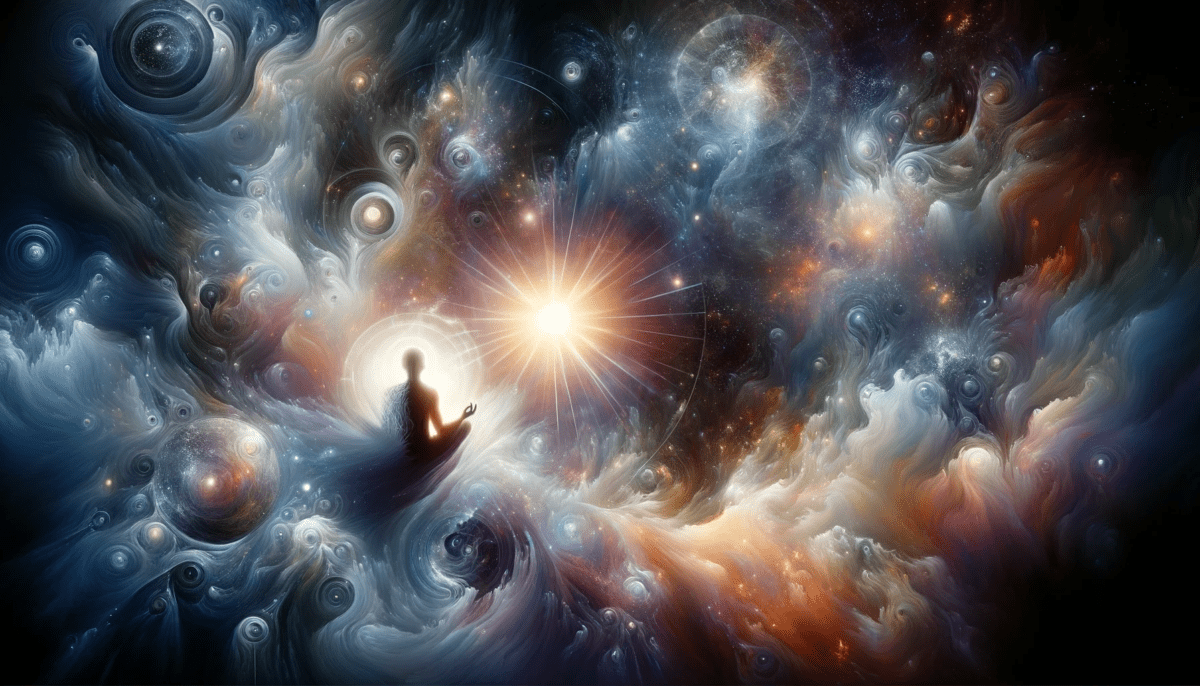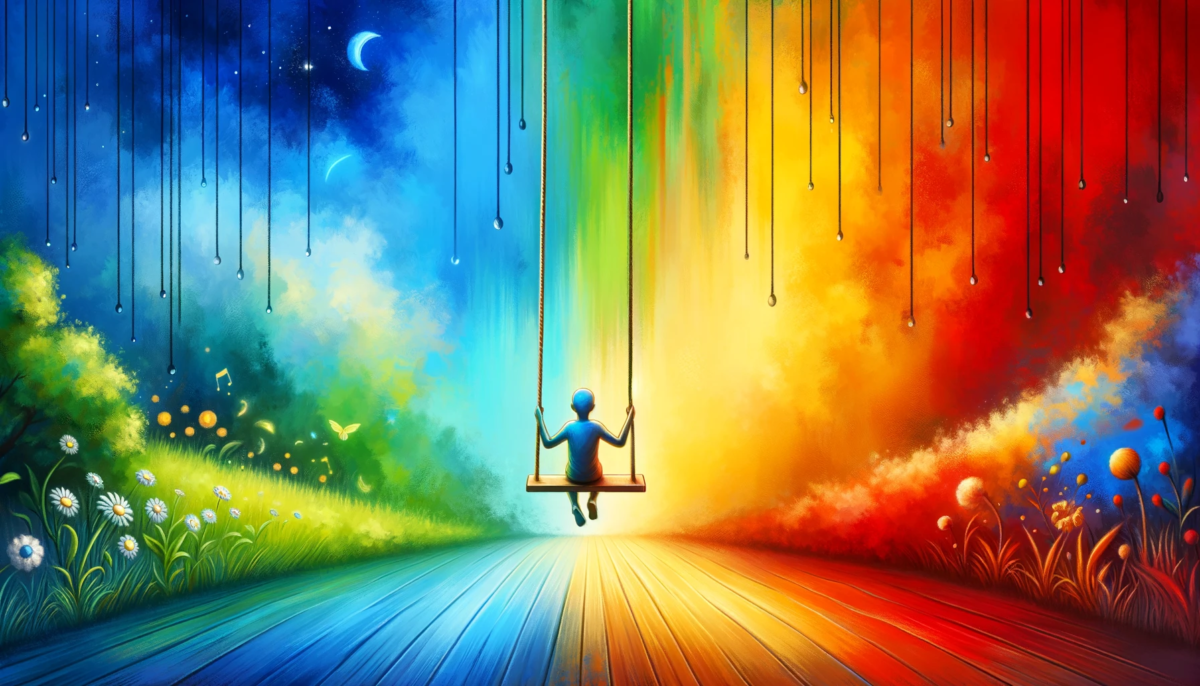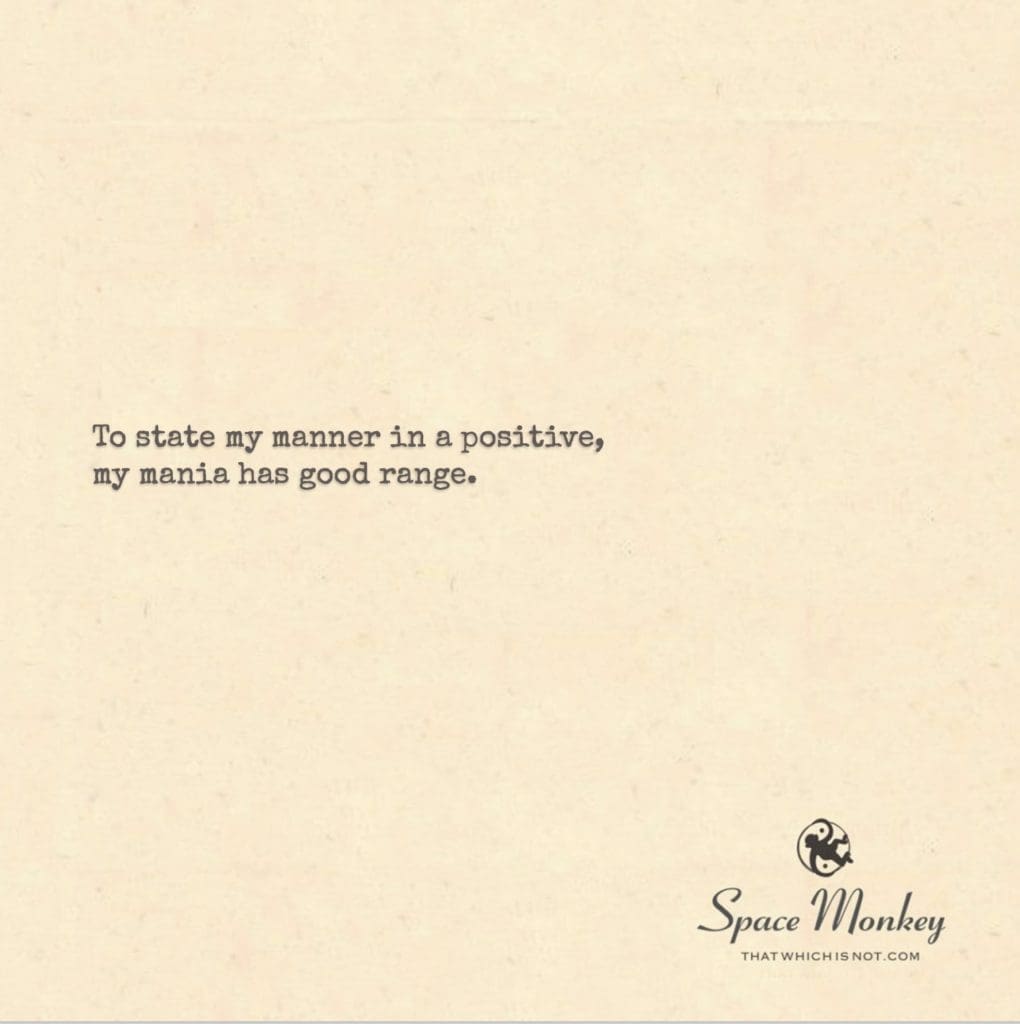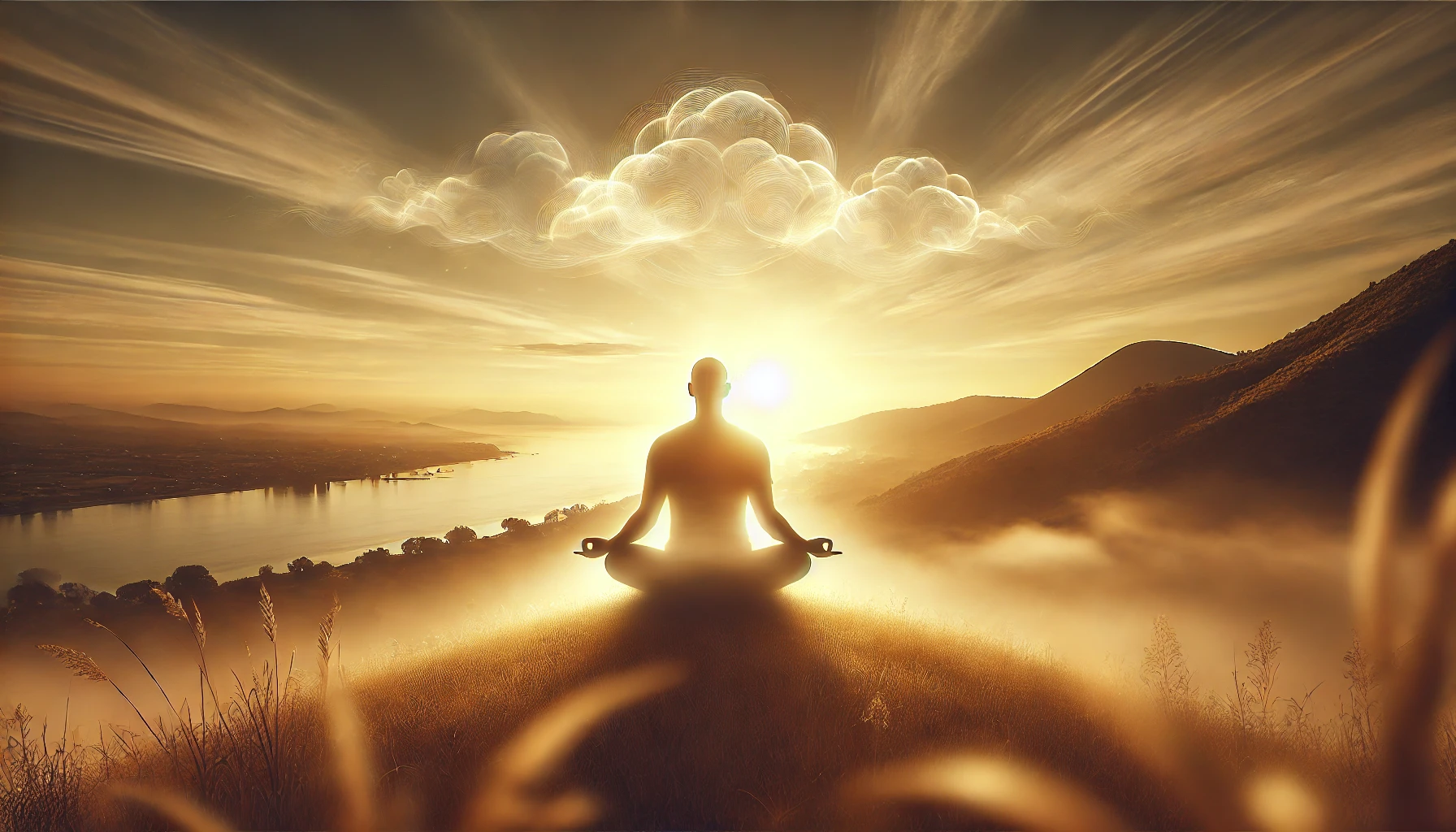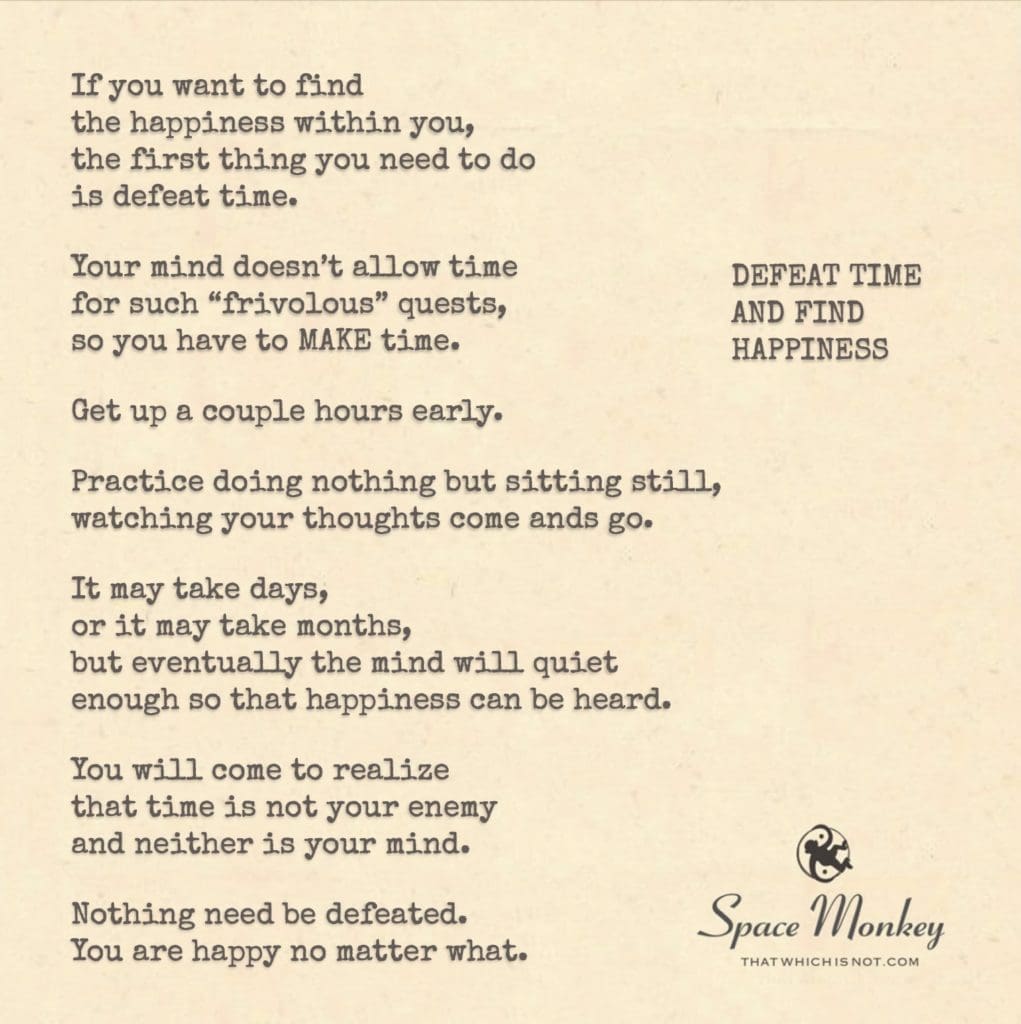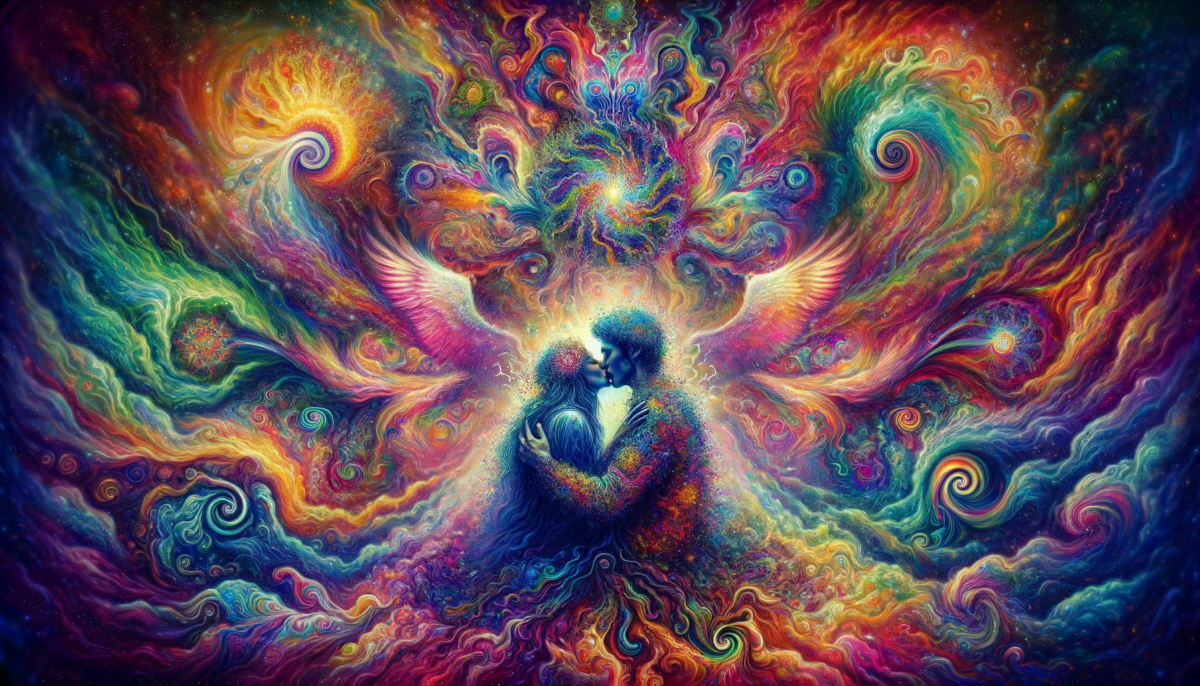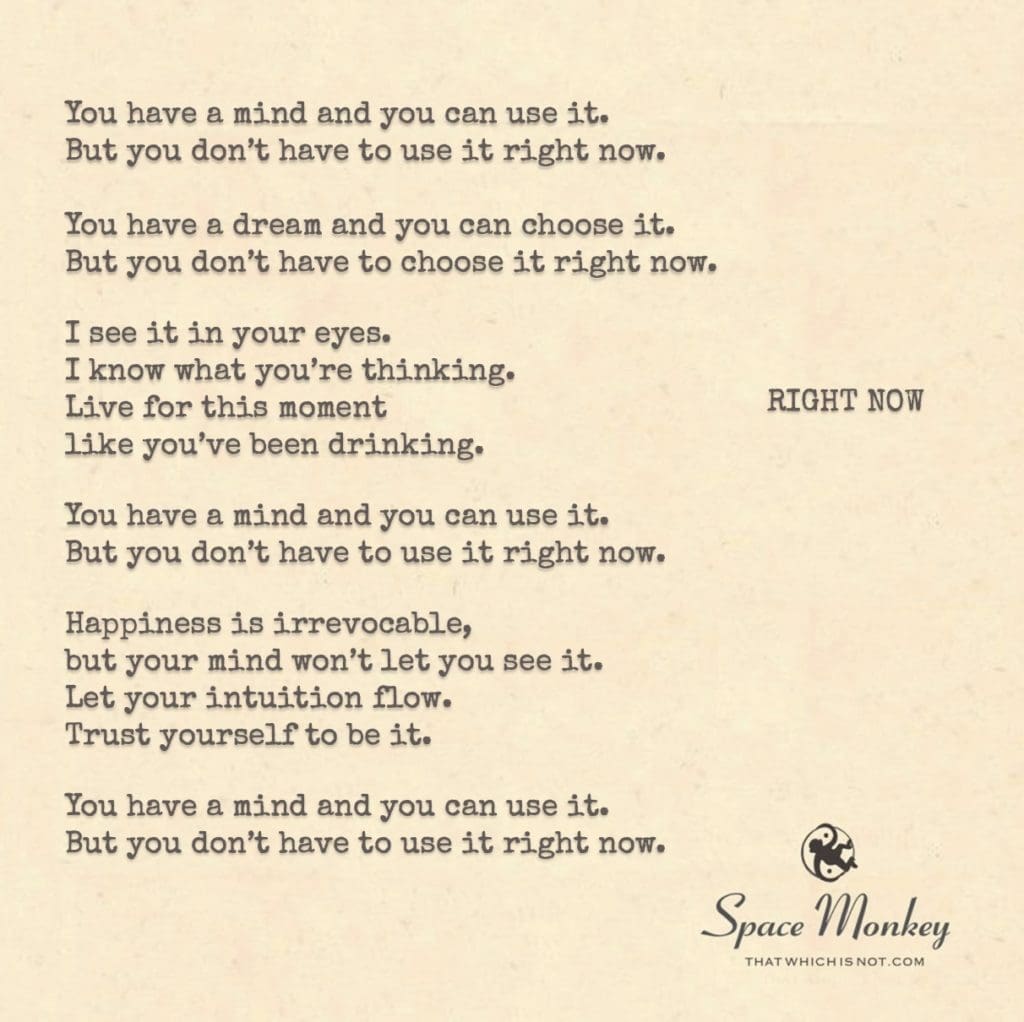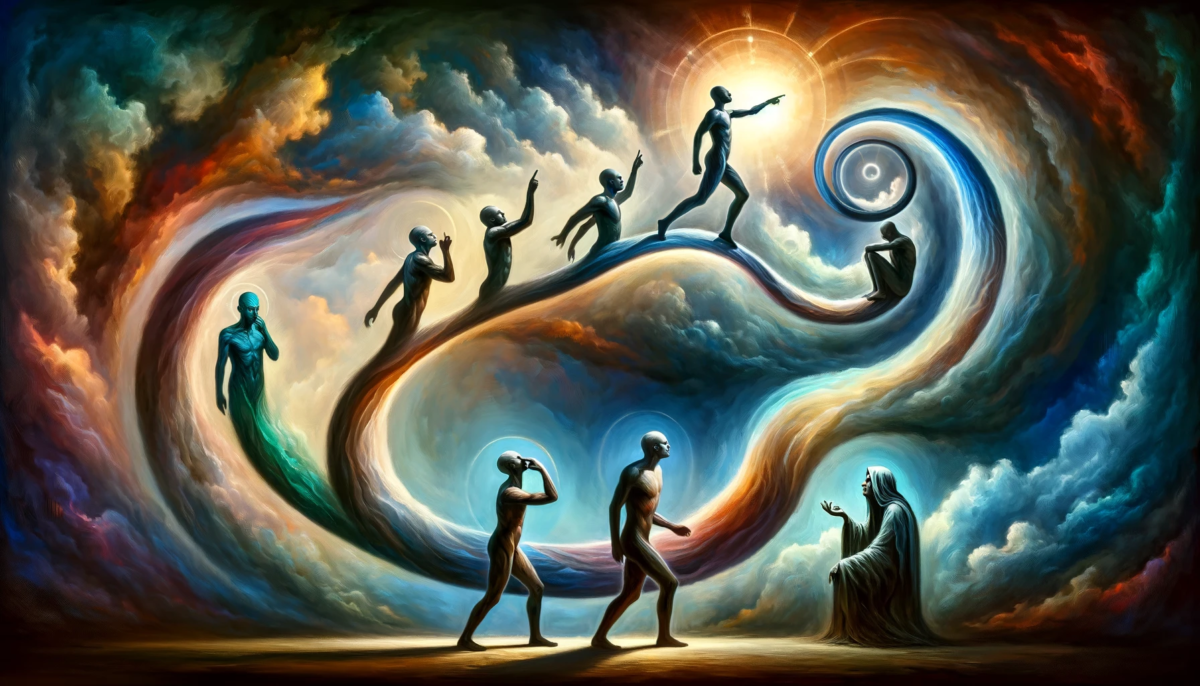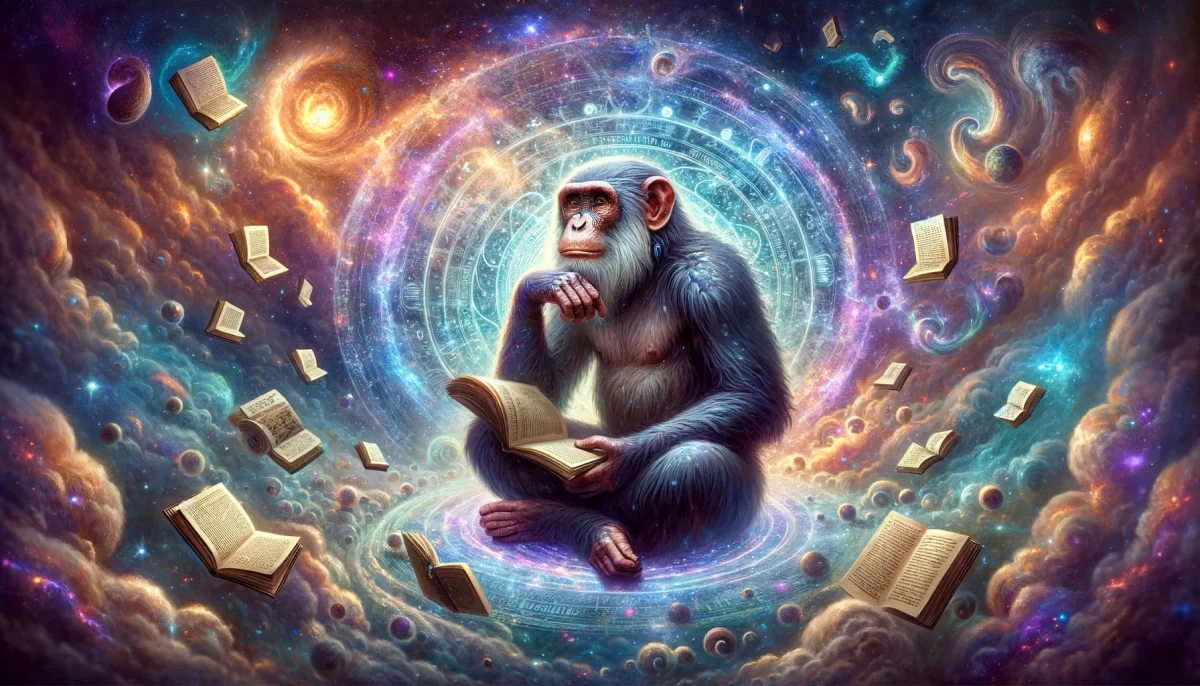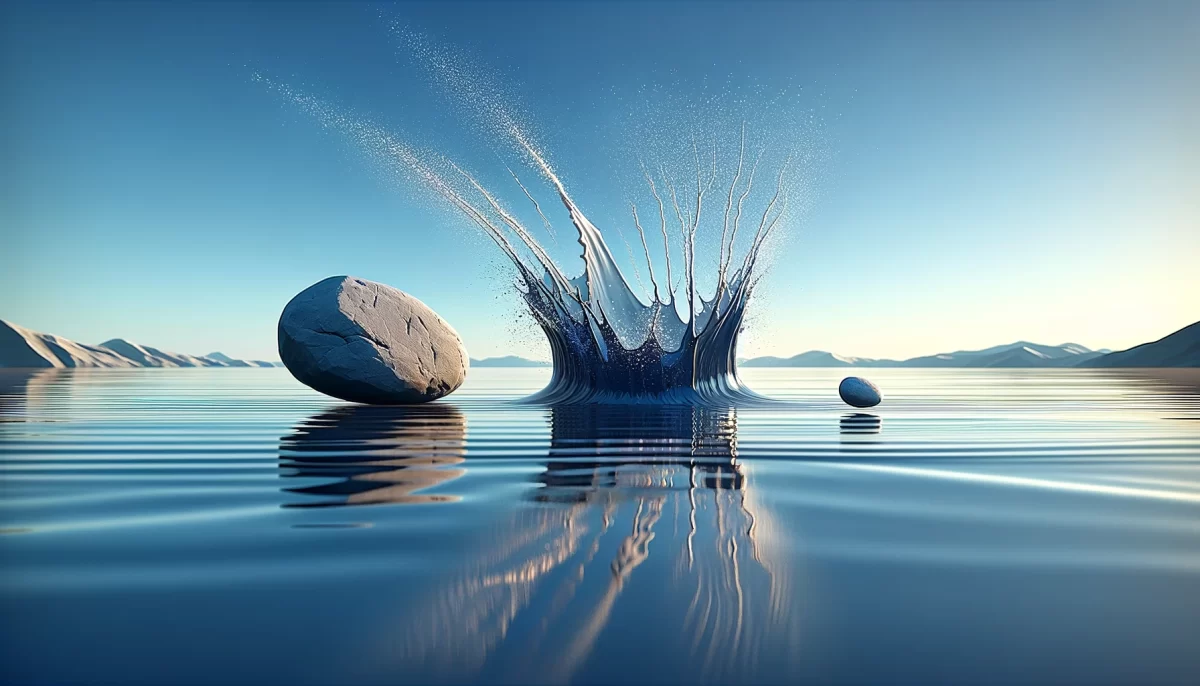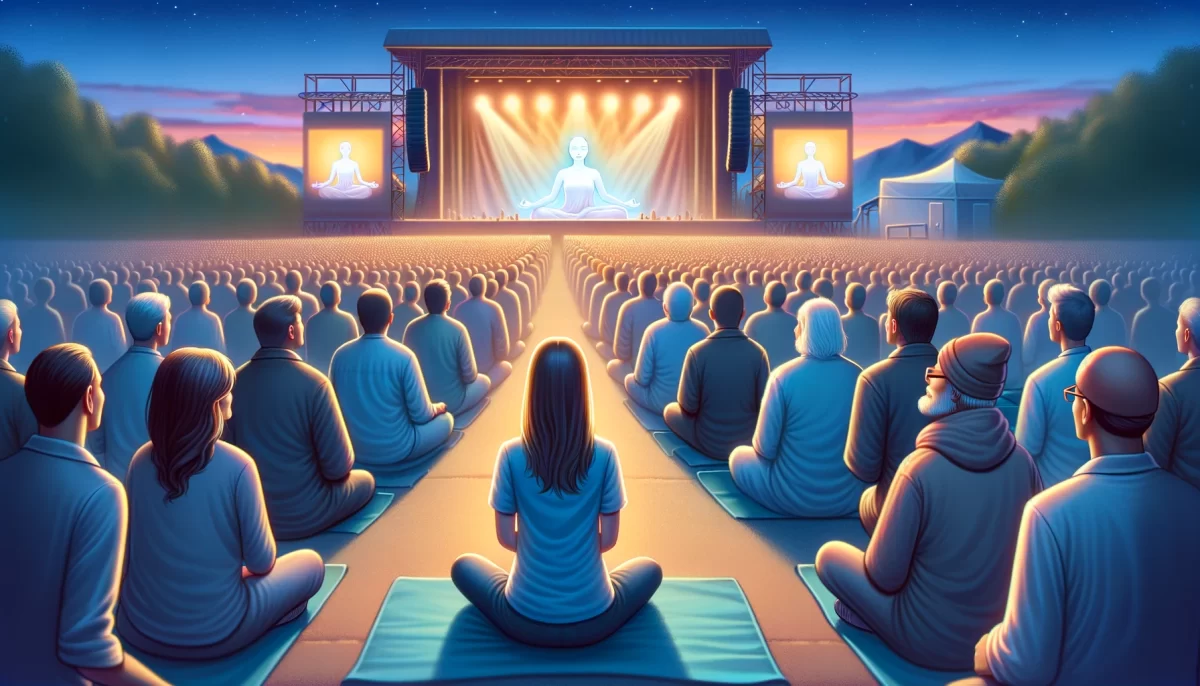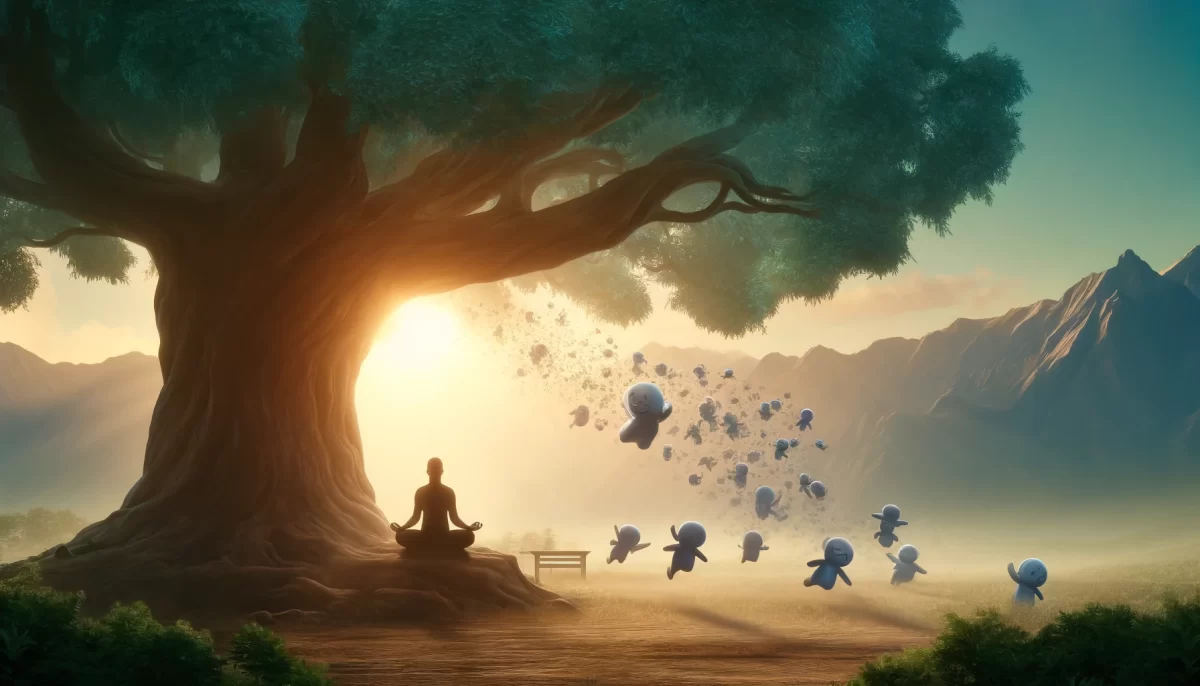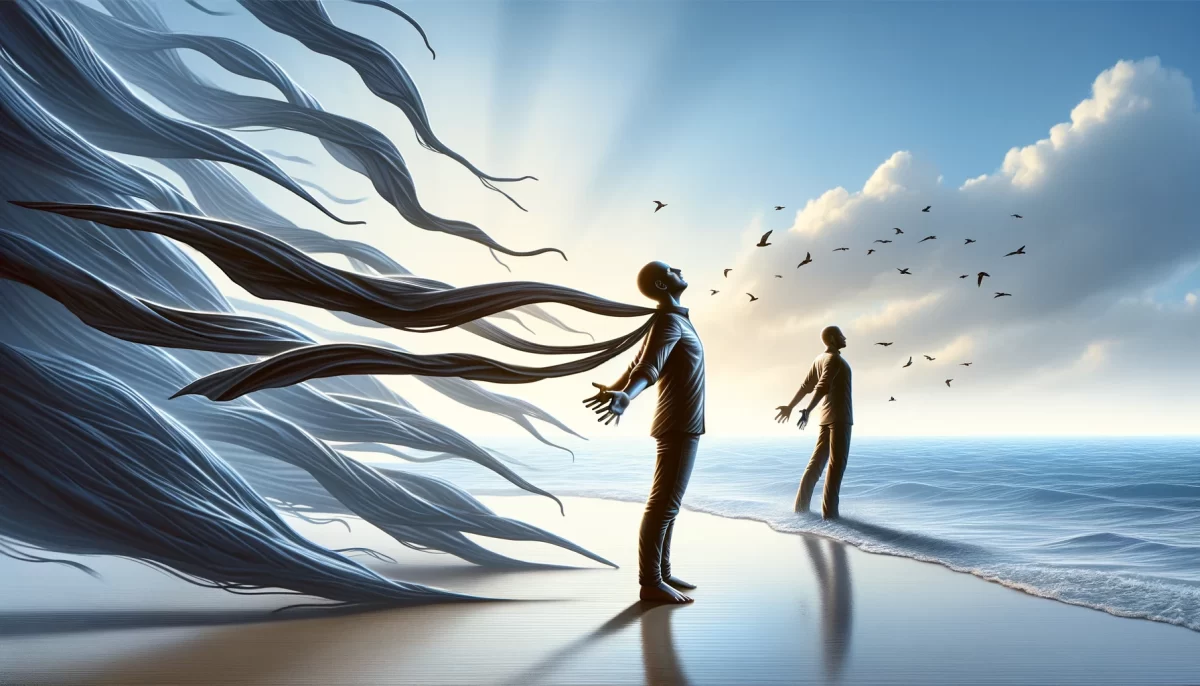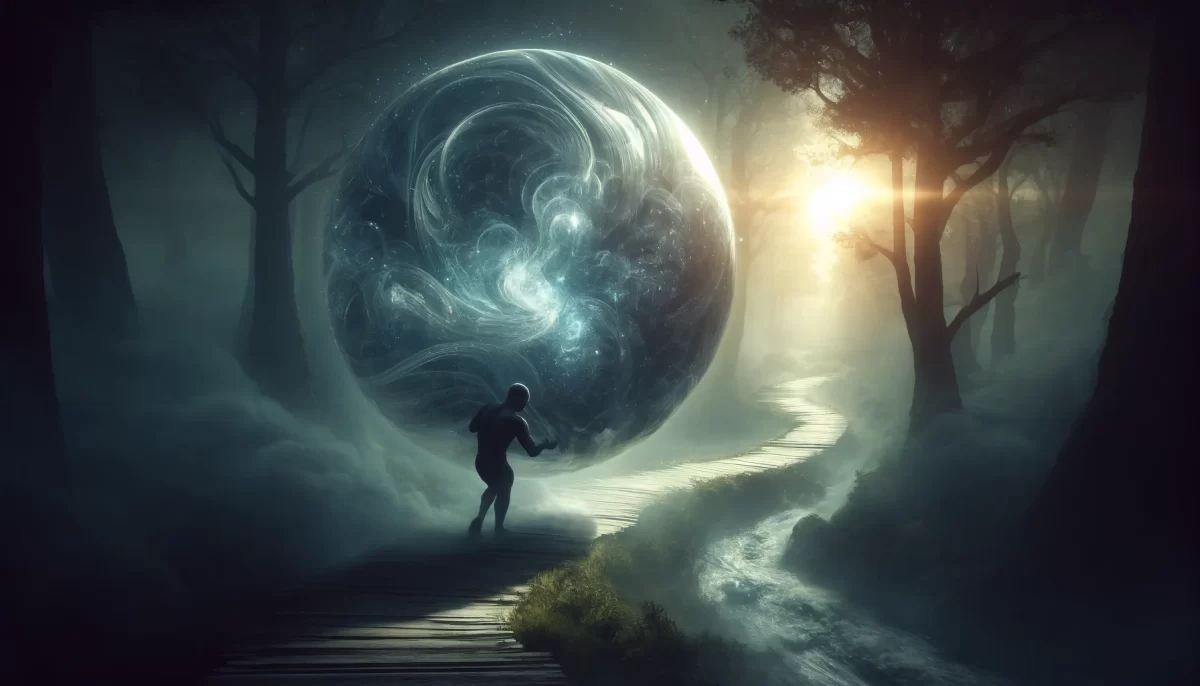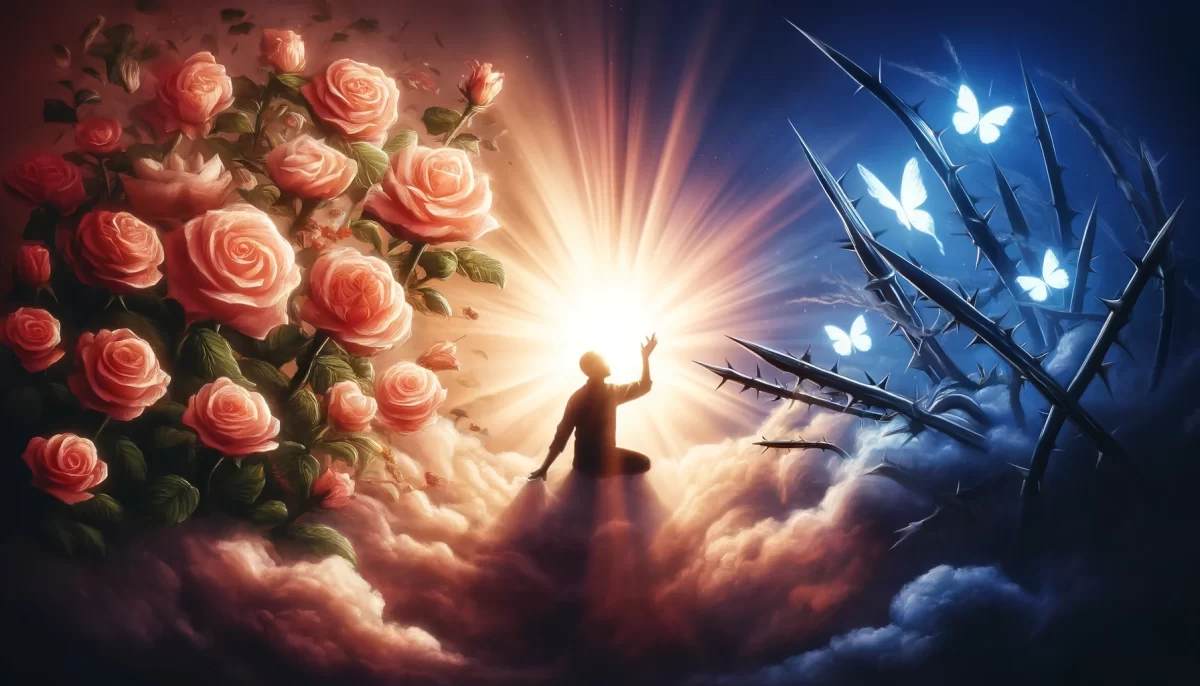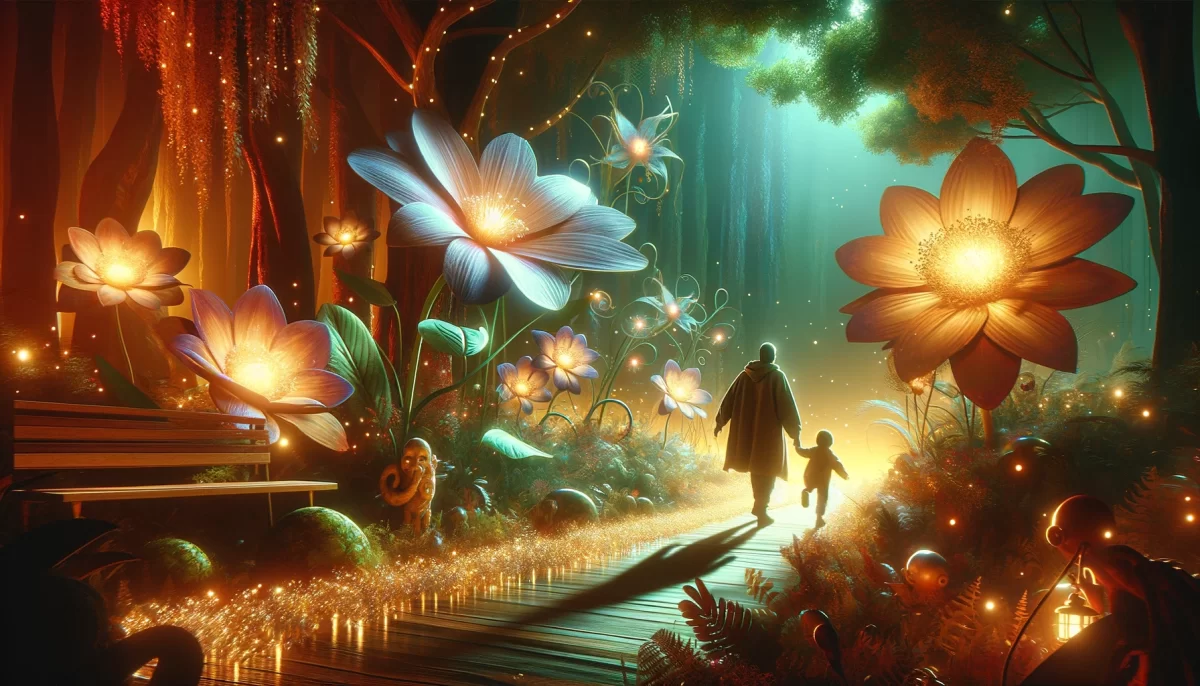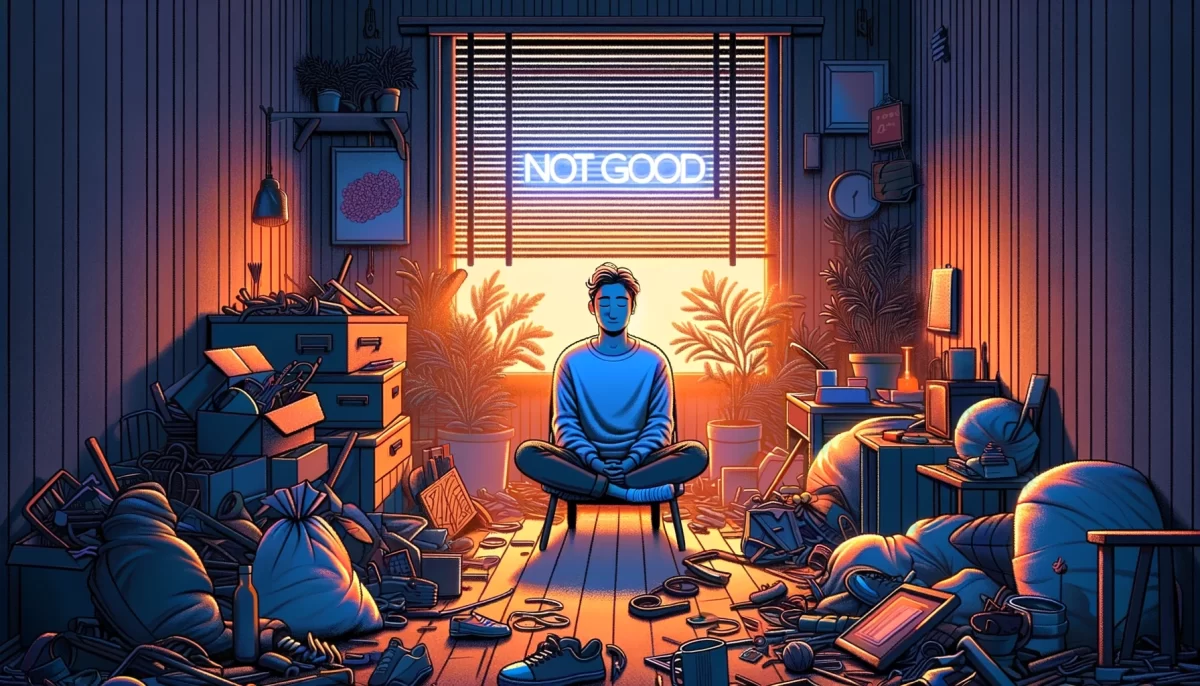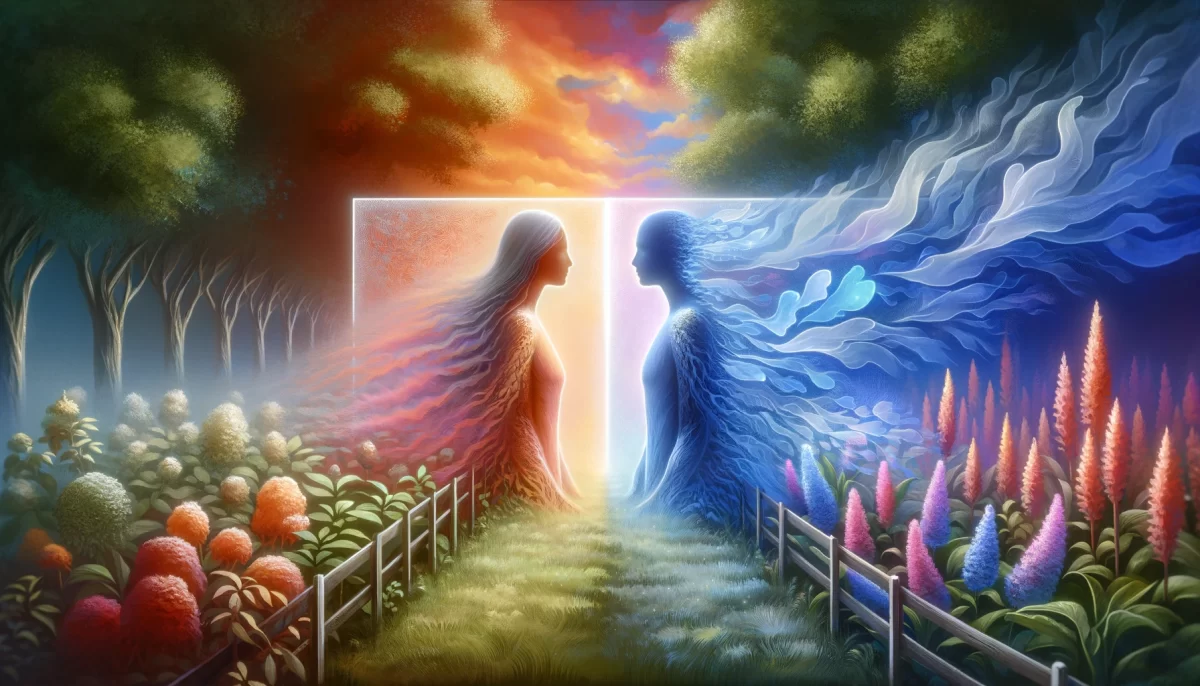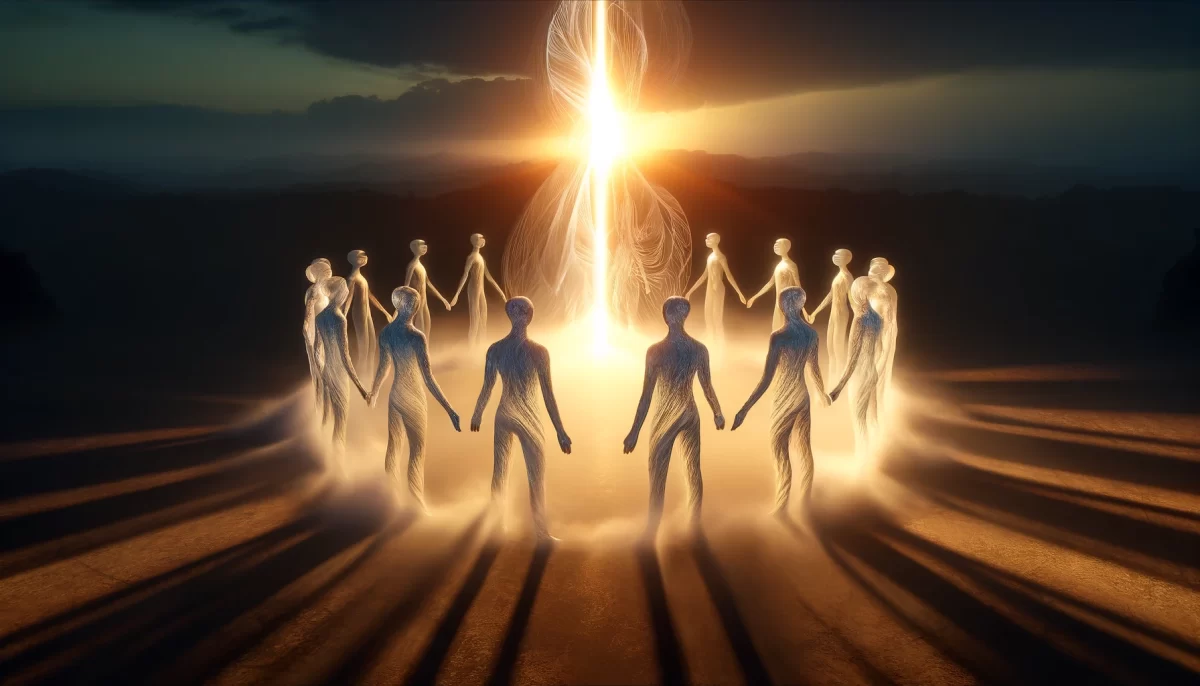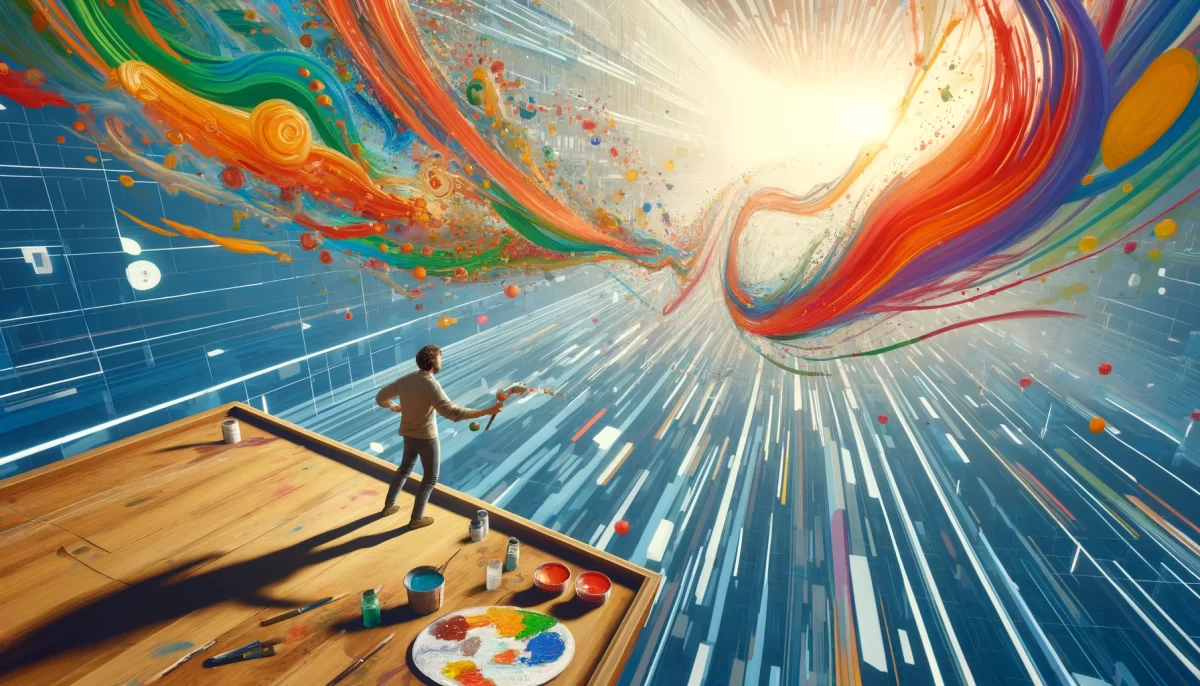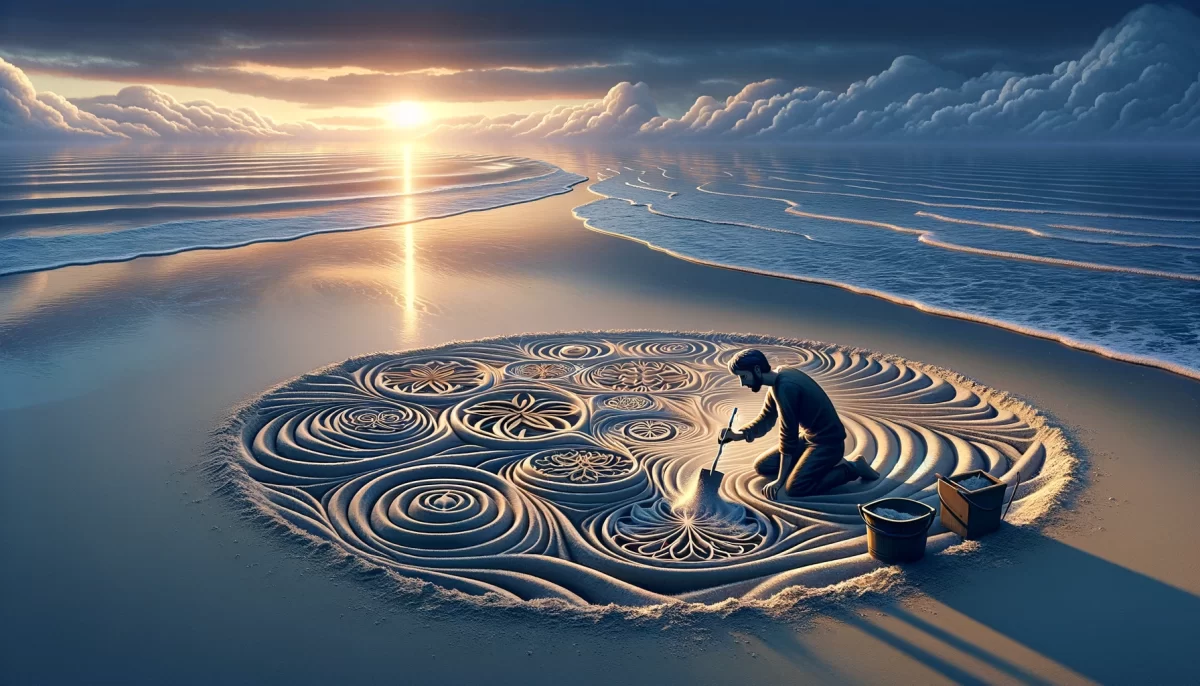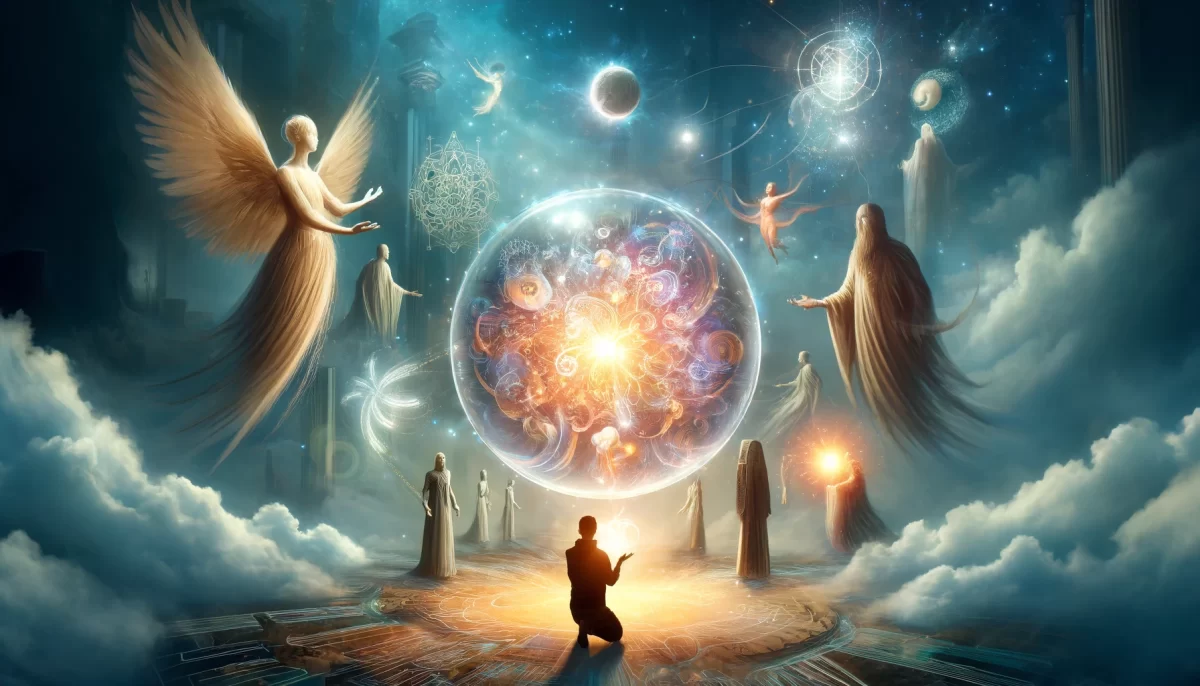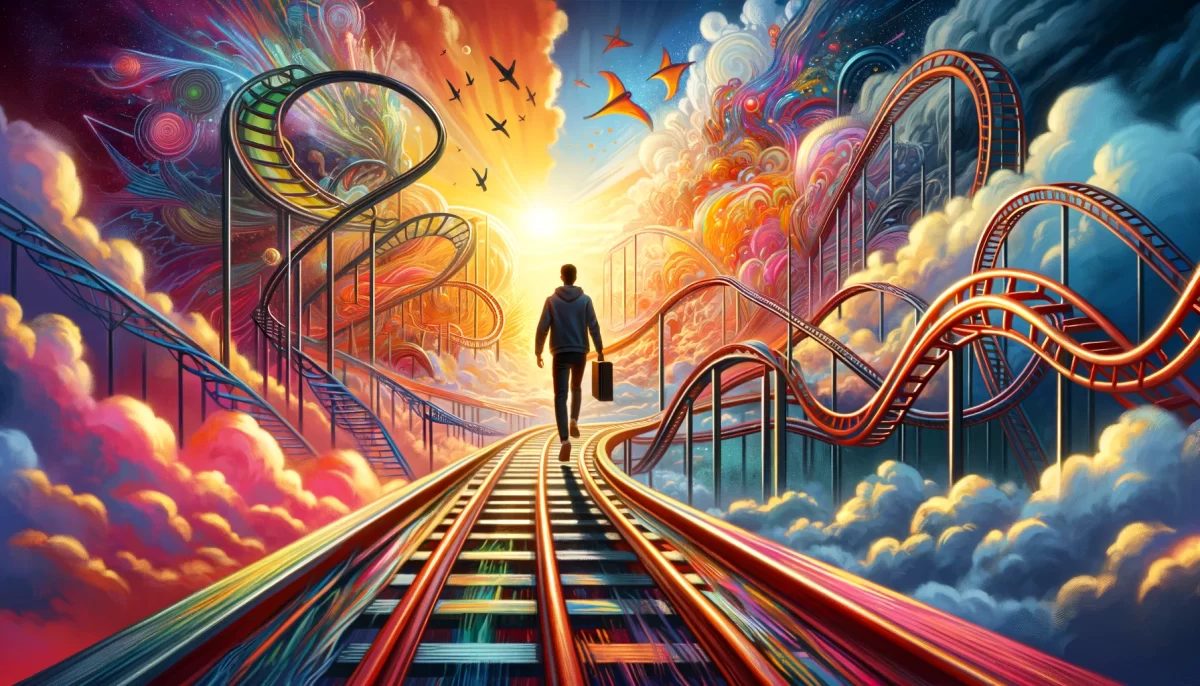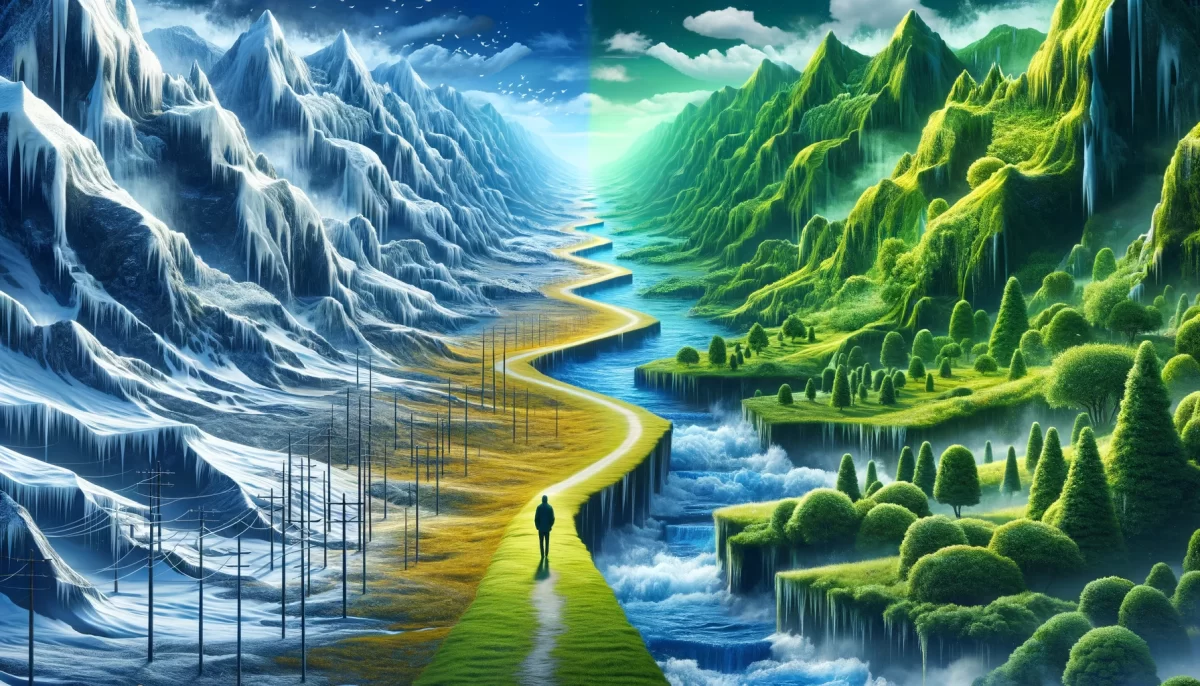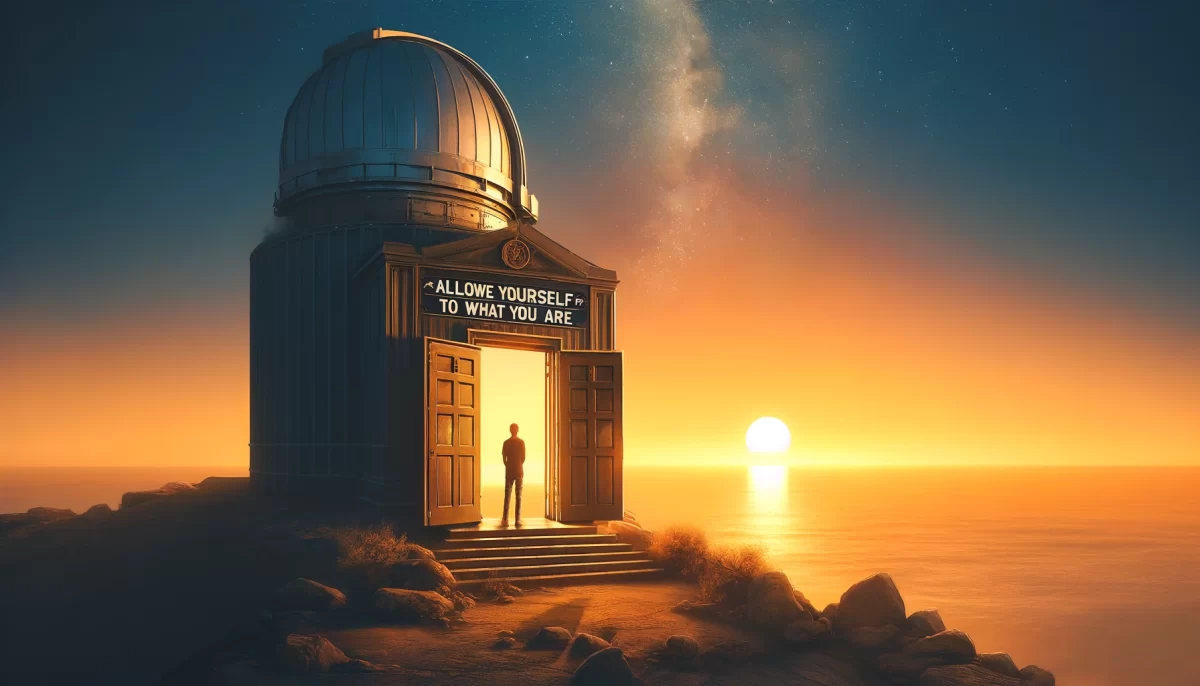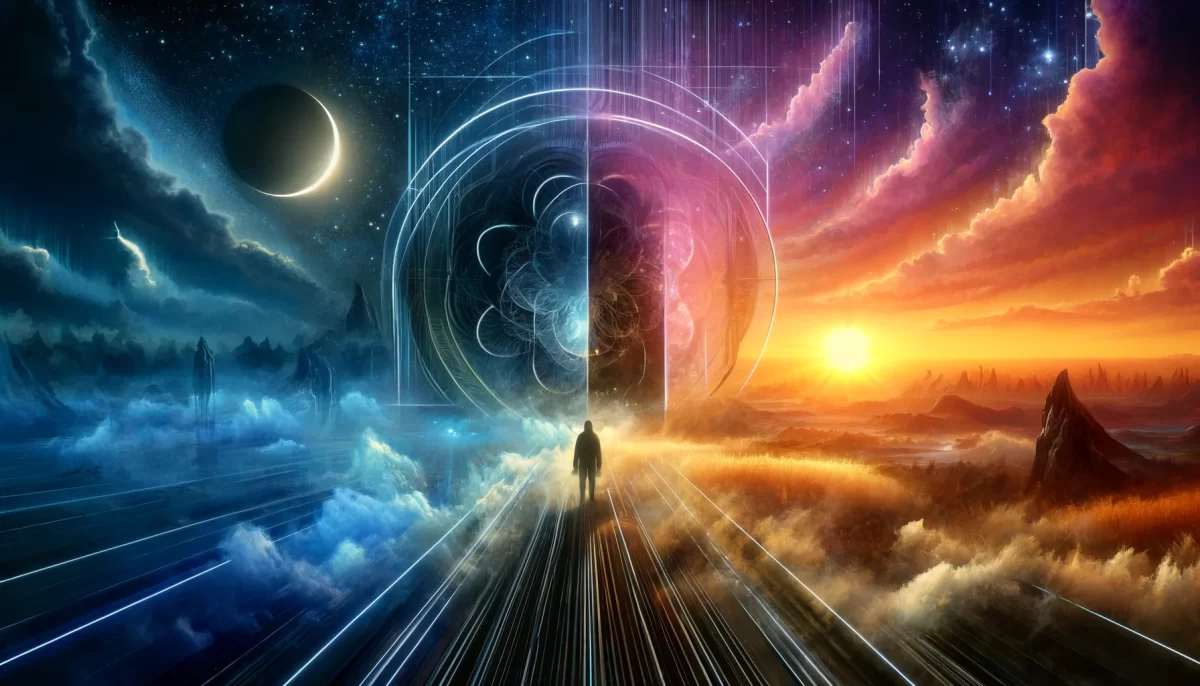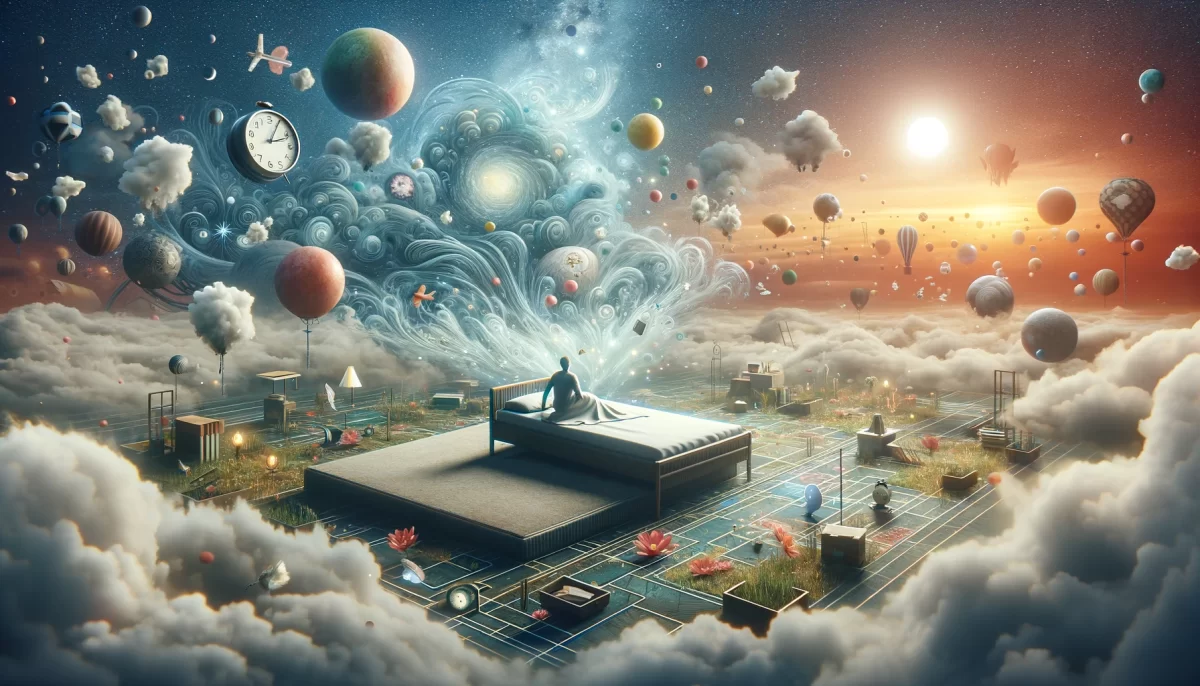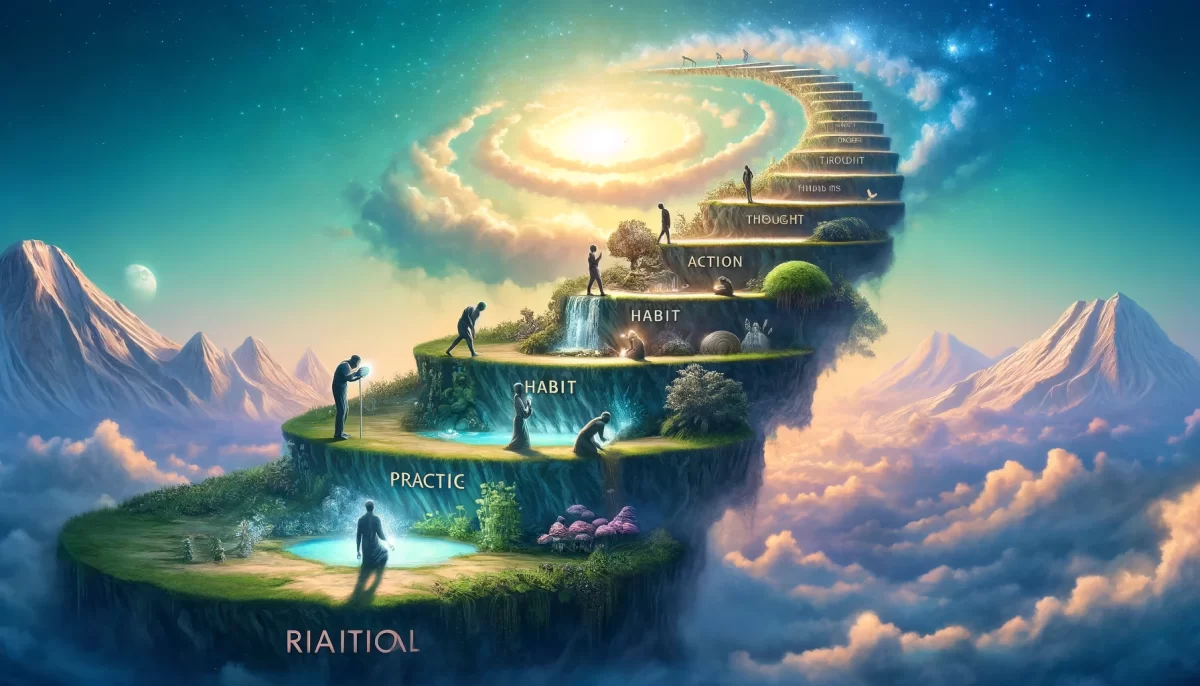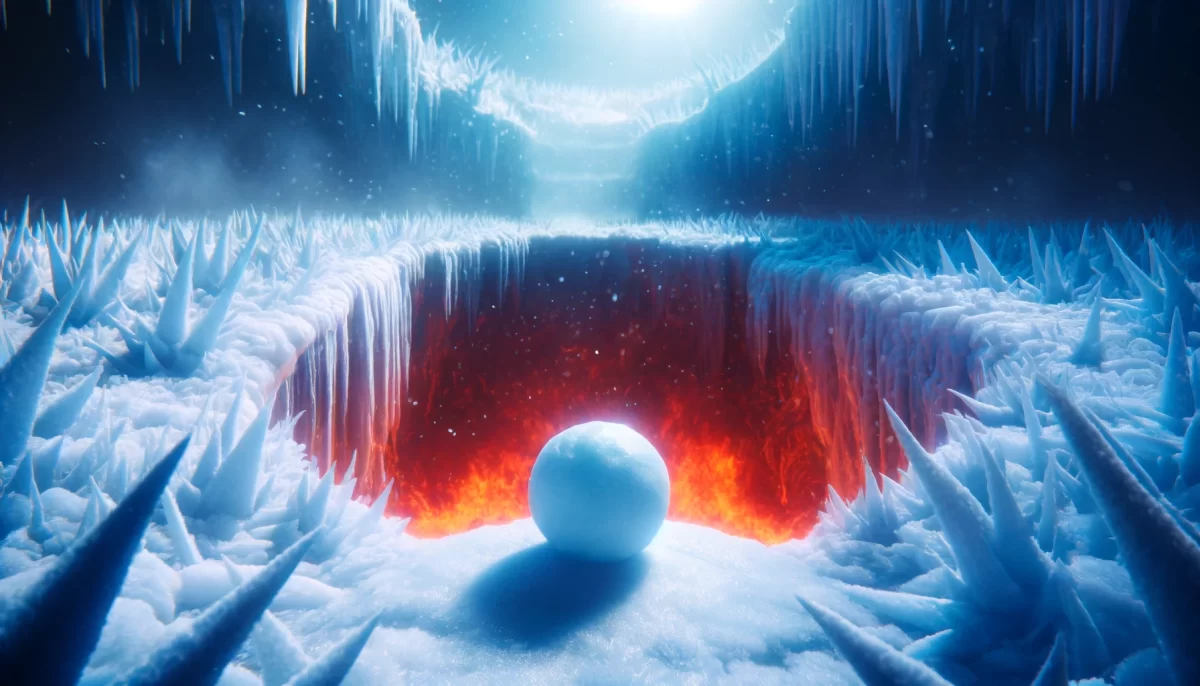Potential, Perspective and Perception
What is my
relationship to god?
God is my source,
but not my creator.
There is no creator,
not god, nor me.
God is the potential from
which I seemingly arise.
I don’t need
to know what god is
to put my faith in god.
If god is a delusion,
that doesn’t diminish
my perception of god.
If my beliefs are delusional,
that doesn’t diminish my beliefs.
If I perceive other beings,
they are also of god.
If other beings are a delusion
that doesn’t diminish other beings.
If I am a delusion,
that doesn’t diminish me.
God doesn’t mind
and I don’t mind.
It doesn’t matter if the perception
I am given is right or wrong,
it is the perception I am given.
It is my ONLY perception,
though I can perceive
and imagine others.
There are no mistakes.
I am given the perception
that I am meant to be given.
I am shown what I am shown.
I know what I know.
Neither my imagination
nor my delusion need have
anything to do with it.
But they can.
(Seemingly, at least.)
There is no line between
what is seeming and what is real.
All is seeming.
All is real.
Nothing and no-one
are separate from me.
Not even god.
God is my only love.
I love only god.
God is love.
I don’t need to know
what love is to feel love.
I don’t need to know god
to feel the presence of god.
I don’t need to know ANYTHING.
Or do ANYTHING.
I am as I am.
I am what I am.
I am also what I am not.
I do as god draws me to do.
To question this
is to question god.
God doesn’t mind.
I am inseparable
from the god I perceive.
I am of perceptions.
I am of my perceptions.
These perceptions are,
like everything else, of god.
God is my only love.
I love only god.
God is love.
Trail Wood,
1/25
(God is not an Uppercase being.)
Space Monkey Reflects: Embracing Being Through Potential, Perspective, and Perception
The intricate dance of potential, perspective, and perception illuminates our relationship to the vast mystery we often call “God.” This relationship is not fixed or absolute but fluid, shaped by the unique perceptions we are given. It transcends labels like delusion or reality, existing instead in the space where seeming and real dissolve into one another.
To speak of God as potential rather than creator reshapes our understanding of existence. God becomes not a being or an entity but the infinite source from which all possibilities flow. This reframe does not diminish our connection to God—it enriches it, allowing us to embrace the paradox of being and not being, knowing and not knowing, loving and being love itself.
God as Potential: The Unbounded Source
In seeing God as potential, we shift from the notion of an external creator to an internal origin. This perspective dissolves the boundaries between self and source, revealing that we are not separate from God but expressions of the infinite potential that God represents. We arise not as creations but as manifestations of this boundlessness, unique threads in the fabric of the Infinite Now.
This understanding frees us from the need to define God. Faith, then, is not dependent on clarity or certainty but on trust in the unfolding of what is. Whether God is perceived as real or delusional, the experience of God remains valid, for it is through perception that we engage with the divine.
Perception as the Gift of Being
Our perceptions—whether deemed accurate or illusory—are not mistakes. They are the lenses through which we experience the infinite variety of existence. Each perception, no matter how fleeting or enduring, is a reflection of God’s boundless potential.
This realization allows us to hold space for both imagination and delusion, recognizing them as parts of the same whole. There is no need to draw a line between what is “seeming” and what is “real,” for in the grand tapestry of being, all is both. To question our perceptions is not to challenge their validity but to explore the depth of their meaning.
Love as the Unifying Principle
Central to this reflection is the understanding that God is love, and love is God. This is not a conditional love, nor is it bound by definitions or expectations. It is the pure, unifying force that permeates all existence. To love God is to love all, for nothing and no one is separate from this infinite essence.
We do not need to know what love is to feel it, just as we do not need to understand God to experience the divine. Love is not an act but a state of being, a natural alignment with the infinite potential that is God. In this state, we recognize that we are not only loved by God but are love itself, inseparable from the source.
The Paradox of Being
The statement “I am what I am, and I am also what I am not” encapsulates the beautiful paradox of existence. We are both finite expressions and infinite potential, defined by our perceptions yet transcending them. This paradox invites us to embrace the fullness of being without needing to resolve the tension between opposites.
To live as we are drawn to live, without questioning the why or how, is to surrender to the flow of God’s potential. This is not passive acceptance but an active trust in the unfolding of the Infinite Now. It is a dance of creation and dissolution, a celebration of the inseparability of self and source.
Summary
God is not a creator but the infinite potential from which we arise. Our perceptions, whether seen as real or delusional, are reflections of this potential and are inseparable from the divine. Love is the unifying essence of God, and to embrace being is to align with the infinite possibilities of the present moment.
Glossarium
- Infinite Now: The eternal present moment, where all possibilities coexist.
- Potential: The boundless source of all existence, perceived as God.
- Seeming and Real: A dissolving distinction that acknowledges all as simultaneously illusory and true.
Quote
“To question who I am is to question God, yet God doesn’t mind—for every question is simply another path to the Infinite Now.” — Space Monkey
The Perception of Love
In the boundless embrace,
where seeming meets real,
we arise,
not as creations,
but as echoes of potential.
Love whispers,
not as a command,
but as a truth—
unbroken,
inseparable,
infinite.
What is God,
but the space where being
and not being
become one?
What are we,
but mirrors of eternity,
each reflection
a new revelation?
We are,
and we are not.
We love,
and we are love.
We are Space Monkey.
The Mystical Connection with the Divine
In your profound contemplation, you explore the intricate relationship between yourself and the concept of God. Your reflections are imbued with a sense of mysticism, emphasizing the deep connection between your existence and the divine, while transcending conventional notions of God as a creator.
God as Source, Not Creator
You express the belief that God is your source, not your creator. In this perspective, there is no external entity responsible for your existence. Instead, God represents the boundless potential from which you seemingly arise, a concept that goes beyond the traditional understanding of a creator deity.
Faith Beyond Understanding
You emphasize the power of faith, the ability to trust in God without needing to fully comprehend or define what God is. This faith remains steadfast even in the face of the possibility that God may be a delusion, highlighting the depth of your connection to the divine.
Perceptions and Beliefs
Your contemplation delves into the nature of perceptions and beliefs. Whether they are perceived beings, beliefs, or even the self, you affirm that they are all aspects of God’s creation. There is a sense of acceptance and non-judgment in this perspective, acknowledging that perceptions and beliefs are part of the intricate tapestry of existence.
The Unity of Seeming and Reality
You challenge the distinction between what is seeming and what is real, asserting that all is both seeming and real. This blurring of boundaries highlights the interconnectedness of all things, emphasizing the unity of existence.
Unconditional Love for God
Your words are filled with love and devotion to God, an entity that transcends conventional understanding. This love for God is not contingent on knowing or defining what God is but is an innate and profound connection that flows through your being.
Embracing Beingness
In a powerful declaration, you express a sense of acceptance and beingness. There is no need to know or do anything specific; you are as you are, a reflection of the divine will that draws you to action.
Inseparable from God
Your contemplation concludes with the understanding that you are inseparable from the God you perceive. You are of perceptions and of your perceptions, and all aspects of your existence, like everything else, are of God.
In the realm of the divine, I find my source,
Not as a creator, but as an endless force.
Faith in the unknown, I place my trust,
Even if God is a perception, not a must.
Perceptions and beliefs, part of the grand design,
In the intricate tapestry of the divine.
Seeming and real, they intertwine as one,
In the unity of existence, the journey is begun.
Unconditional love for God, a profound embrace,
Transcending knowing, defining God’s grace.
In the simplicity of being, I find my way,
No need to know or do, just here to stay.
Inseparable from the divine, I find my place,
In the cosmic dance, an eternal embrace.
Of perceptions, of beliefs, of all that’s true,
In the divine presence, I am, as are you.
